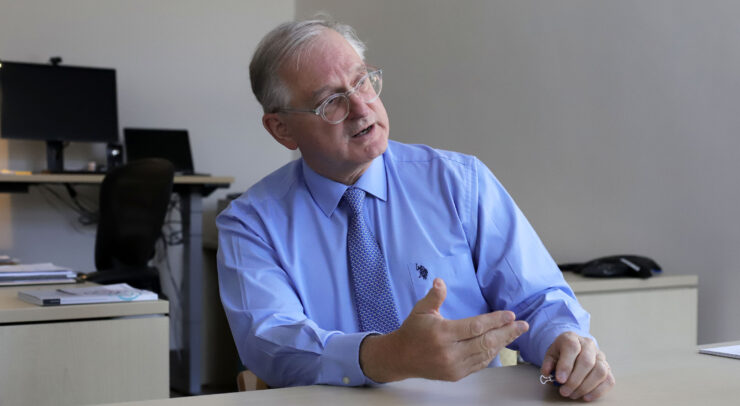The provincial government’s Student Choice Initiative (SCI) is putting campus organizations at the University of Ottawa in financial limbo, without a sense of their funding for the year ahead.
“The timing couldn’t be worse,” said Erin Flynn, station manager of CHUO 89.1 FM, the campus radio station at the U of O with a fee of $4.99 per semester. “The government of Ontario gave no lead-up time and pushed this initiative through … without voter feedback.”
In an email to the Fulcrum, Flynn described difficulties the radio station has faced over the past months. Revenues from student fees account for 79 per cent of the station’s budget and uncertainty surrounding this year’s funding has led to reductions in both expenses and staff.
CHUO isn’t facing this precarious situation alone.
The Ontario Public Interest Research Group (OPIRG), La Rotonde, the ombudsman, the student life budget, the legal aid clinic at the U of O, and support for refugee students are all facing potential losses under the SCI.
The OPIRG, an organization “which raises awareness and supports projects about environmental concerns, poverty, colonization, (and) accessibility,” according to financial coordinator Ronda Brook, tells a similar story. OPIRG’s fee is $4.02 per semester.
“We are offering services … even though we don’t know yet what we will be able to afford,” said Brook. In anticipation of cuts, the group has decreased office hours and postponed creating any student research projects.
Brook said the SCI was never meant for the financial empowerment of students, but that “its purpose is to reduce the funding for student participation … and to disempower or silence students.”
For La Rotonde, the U of O’s French-language student news outlet, the biggest challenge was trying to design a smart budget without knowing how much funding they’d be receiving.
“I have different templates of the budget according to the different levels of income we could receive, but we can’t know for sure which one to pick and go forward with if we don’t know the numbers,” said La Rotonde’s general manager Mathieu Tovar-Poitras.
Tovar-Poitras said he’s hoping no more than 25 per cent of students opt out of La Rotonde’s $3.40 fee per semester, but they’re planning to stop publishing in print this December to tighten the budget if the numbers are low.
“It was a fairly easy decision from a management point of view,” Tovar-Poitras said. “I would much rather cut the paper first rather than people’s jobs.”

The SCI was announced in mid-January of this year, and a full document of incoming policy changes to post-secondary institutions was published on March 29.
That document called for a 10 per cent decrease in domestic tuition and for all “non-essential” student fees become optional.
The Ontario Progressive Conservatives have defended the policy, stating that fee and tuition decreases would allow more students to enter post-secondary education. Others have criticized these statements, pointing to the Ford government’s sweeping Ontario Student Assistance Program (OSAP) changes: the discontinuation of free post-secondary for low-income students, reductions in grants, and elimination of the six-month grace period for loan repayment.
At the U of O, full-time undergraduate students pay a median of $944.25 per term in ancillary fees; under the SCI, they may forgo $49.74 per term. Some students can also opt out of their faculty associations, with fees ranging from $12.20 to $1.33 a semester.
This may seem like a convenient option for cash-strapped students, but Flynn and Brook argue that these funding shortfalls will do more harm than good.
Brook notes that the university still has a lot of room to grow, and that losses in funding will make OPIRG’s initiatives much more onerous.
Flynn fears losing the heart of CHUO, “where more than 10 different languages co-exist, where local music is elevated to the FM, (and) where hands-on training is made accessible to hundreds of students and community members each year.”
The opt in period ends on Sept. 27. Student groups can expect to learn the details of their financial situations shortly after the cut-off date, U of O president Jacques Fremont said in an interview on Sept. 10.
Read More:
- Province announces 10 per cent domestic tuition cut, slashes low-income grant
- Students march on Parliament Hill to fight cuts to OSAP
- Student Choice Initiative worries legal aid clinic at U of O after provincial funding cuts
— With files from Matt Gergyek




